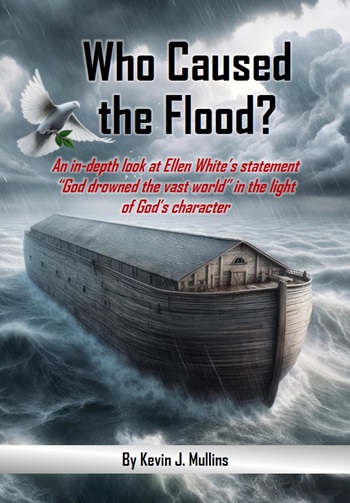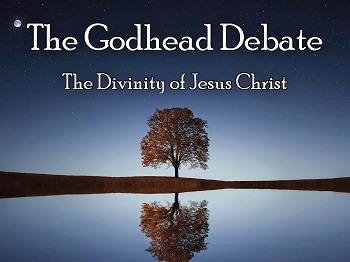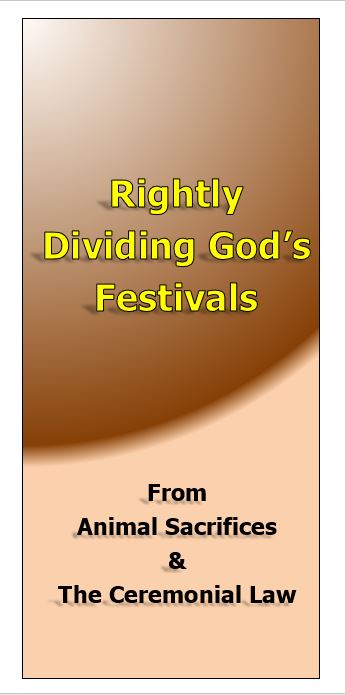The Plan of Salvation and the Counsel of Peace
Hello Adrian
Just wanted to share a passage from previously unpublished works confirming that the everlasting covenant was between Father and Son before the earth was created.
God bless and looking forward to seeing you soon.
Manuscript 111-1897.22 - 30:
In the darkest hour, when Christ was enduring the greatest suffering that Satan could bring to torture His humanity, His Father hid from Him His face of love, comfort, and pity. In this trial His heart broke. He cried, “My God, my God, why hast thou forsaken me?” {Ms111-1897.22}
As He hung upon the cross, angels gathered about the divine Sufferer. As they looked upon their loved Commander, and heard His cry, they asked with intense emotion, “Will not the Lord Jehovah save Him? Shall not that soul-piercing cry of God’s only begotten Son prevail?” We ask, What if it had? What if the world had been left to perish with its accumulation of guilt, while the Commander of all heaven again took up His kingly crown and royal robe, leaving an ungrateful, unappreciative people to perish in their sins? {Ms111-1897.23}
Not long before this, He said, “Now is my soul troubled, and what shall I say? Father, save me from this hour.” What melting, heart-stirring words. “Father, glorify thy Son, that thy Son also may glorify thee.” The Father respond to this request. “There came a voice from heaven, saying, I have both glorified it, and will glorify it again.” {Ms111-1897.24}
As the angels beheld the over-mastering anguish of the Son of God, the words were spoken, “The Lord hath sworn, and he will not repent.” Father and Son have clasped their hands, and are mutually pledged to fulfill the terms of the everlasting covenant, to give fallen man another chance. {Ms111-1897.25}
“Jesus, knowing that all things were accomplished, cried out with a loud voice, It is finished. The work that Thou gavest Me is accomplished.” Thus He gave His dying testimony to men and angels that the work He came to earth to do was to save a perishing world by His death. {Ms111-1897.26}
When Christ spoke these words, He addressed His Father. Christ was not alone in making this great sacrifice. It was the fulfillment of the covenant made between the Father and the Son before the foundation of the earth was laid. With clasped hands they entered into the solemn pledge that Christ would become the substitute and surety for the human race if they were overcome by Satan’s sophistry. The compact was now being fully consummated. The climax was reached. Christ had the consciousness that He had fulfilled to the letter the pledge He had made. In death He was more than conqueror. The redemption price has been paid. His right hand and His glorious holy arm have gotten Him the victory. {Ms111-1897.27}
When he uttered the cry, “It is finished,” Christ knew that the battle was won. As a moral conqueror, He planted His banner on the eternal heights. Was there not joy among the angels? Not a son, not a daughter of Adam, but could now lay hold on the merits of the spotless Son of God, and say, Christ has died for me. He is my Saviour. The blood that speaketh better things than that of Abel has been shed. {Ms111-1897.28}
The darkness rolled away from the Saviour and from the cross. Christ bowed His head and died. In His incarnation He had reached the prescribed limit as a sacrifice, but not as a Redeemer. The controversy in regard to the rebellion was answered. The human race have an open door set before them. “These things saith he that is holy, he that is true, he that hath the key of David, he that openeth, and no man shutteth, and shutteth, and no man openeth.” {Ms111-1897.29}
When Christ cried, “It is finished,” God’s unseen hand rent the strong fabric composing the veil of the Temple from top to bottom. The way into the holiest of all was made manifest. God bowed His head satisfied. Now His justice and mercy could blend. He could be just, and yet the justifier of all should believe on Christ. He looked upon the victim expiring on the cross, and said, “It is finished. The human race shall have another trial.” The redemption price was paid, and Satan fell like lightning from heaven. {Ms111-1897.30}
This from Signs of the Times says that the counsel of peace was the decision to enact the plan of salvation when Adam sinned.
Signs of the Times, November 4, 1908:
The Son of God, heaven’s glorious Commander, was touched with pity for the fallen race. His heart was moved with infinite compassion as the woes of the lost world rose up before Him. But divine love had conceived a plan whereby man might be redeemed. The broken law of God demanded the life of the sinner. In all the universe there was but One who could, in behalf of man, satisfy its claims. Since the divine law is as sacred as God Himself, only one equal with God could make atonement for its transgression. None but Christ could redeem fallen man from the curse of the law, and bring him again into harmony with Heaven. Christ would take upon Himself the guilt and shame of sin—sin so offensive to a holy God that it must separate the Father and the Son. Christ would reach to the depths of misery to rescue the ruined race. {ST November 4, 1908, par. 2}
Before the Father He pleaded in the sinner’s behalf, while the host of heaven awaited the result with an intensity of interest that words cannot express. Long continued was that mysterious communing – “the counsel of peace” [Zech 6:13] – for the fallen sons of men. The plan of salvation had been laid before the creation of the earth; for Christ is a lamb “foreordained before the foundation of the world”; yet it was a struggle, even with the King of the universe, to yield up His Son to die for the guilty race. But “God so loved the world, that He gave His only-begotten Son, that whosoever believeth in Him should not perish, but have everlasting life.” O, the mystery of redemption! the love of God for a world that did not love Him! Who can know the depths of that love which “passeth knowledge”? Through endless ages, immortal minds, seeking to comprehend the mystery of that incomprehensible love, will wonder and adore. {ST November 4, 1908, par. 3}





